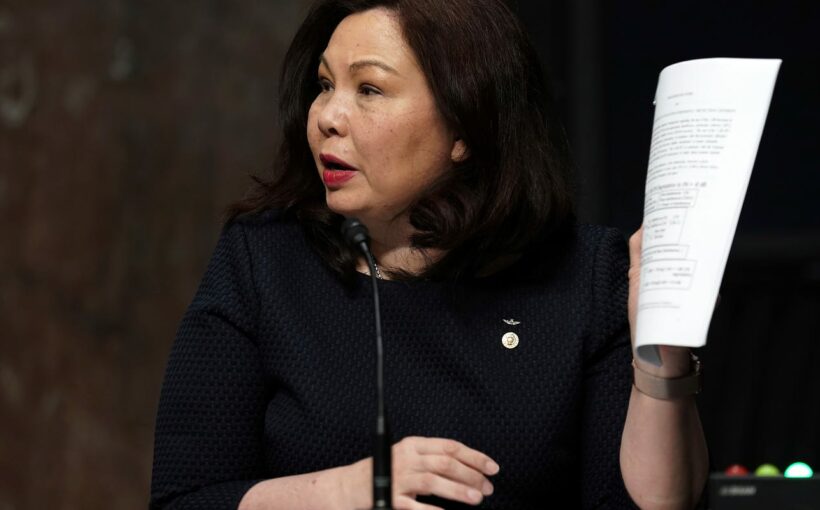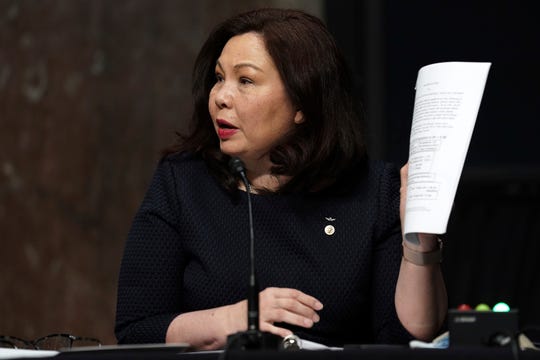The fight against racism in America is also a fight for representation in the rooms where decisions are being made. Racism is about exclusion. It is about devaluing communities of color. The only way to combat efforts to marginalize our voices is to ensure we play prominent roles in shaping and executing our national agenda. And that is why President Joe Biden’s personnel choices have exasperated the Asian American community and two Asian American senators in particular.
Asian Americans are the fastest growing racial or ethnic group in America, according to the Pew Research Center, and represented nearly 5% of the eligible voting-age population in 2020. That’s double what it was in 2000, and a 139% rise.
Exit polls show a similar spike in election participation. Asian Americans made up 4% of voters in 2020 (twice as high as in 2008) and 61% of them voted for Biden.
No Asian American Cabinet secretaries
The 117th Congress is the most racially and ethnically diverse in history. Asian Americans account for about 6% of the population but only 3% of the House. Contrast that with our friends in the Black community, who make up 13.4% of the population and 13% of House members.
As violence against Asian Americans has skyrocketed and precipitated a long overdue national conversation about racism against our community, a parallel conversation about lack of Asian American and Pacific Islander representation in government has begun.
While Biden named Katherine Tai as U.S. trade representative, a Cabinet-level appointment, it did not go unnoticed within the AAPI community that he picked a zero Asian American Cabinet secretaries and just one deputy secretary. According to the Asian Pacific American Institute of Congressional Studies, this is the first time in more than 20 years that no Asian American or Pacific Islander is serving as a Cabinet secretary.
Furthermore, not one of the three formal White House Policy Councils is headed by an AAPI, nor are there any Asian Americans among the ranks of chief of staff, deputy chiefs of staff, senior advisers, communications director, press secretary or deputy press secretary.
Sen. Tammy Duckworth on May 6, 2020, in Washington, D.C. (Photo: Greg Nash/AP)
A common rebuttal to this criticism is to point to Vice President Kamala Harris, whose mother was Indian American, or Neera Tanden, Biden’s failed nominee to lead the Office of Management and Budget, whose parents were from India.
This is where the nuance of racial context is so important, as evidenced by the interaction Sens. Tammy Duckworth of Illinois and Mazie Hirono of Hawaii had with senior White House officials on Monday night. Duckworth told reporters Tuesday that “to be told that ‘Well, you have Kamala Harris, we’re very proud of her, you don’t need anybody else,’ is insulting.”
Atlanta shootings: Atlanta-area spa killings were not about sexual addiction
Things escalated Tuesday afternoon as Hirono and Duckworth threatened to vote against Biden’s white nominees before ultimately withdrawing the threat Tuesday night after several productive conversations with White House senior officials. Hirono tweeted: “I welcome the appointment of a senior level White House liaison to the AAPI community to further strengthen our voice.”
Going beyond AAPI outreach
Interestingly enough, the White House already has a liaison to the AAPI community, Howard Ou, whose first day was Monday. Will this new “senior level” appointee be different? Will he or she have a direct line to the president? Will the job include more than AAPI outreach and AAPI issues?
Ultimately, our community is looking for representation that goes beyond the symbolic. Of course it is important and valuable for the White House to be able to dispatch an actual Asian American to engage and interact with the AAPI community. But that’s not enough. That’s literally doing the least amount possible.
Asian American racism: Anti-Asian hate could get me killed, something I never worried about until Atlanta killings
The real mark of progress is when people of color are named to substantive roles that aren’t focused on outreach to their own communities, that have true influence on the administration’s agenda extending far beyond their racial/ethnic group’s priorities. We don’t want to just see Asian American faces when there is a crisis within the Asian American community. We want to see Asian American faces when there isn’t a situation specific to our community. We want to see them shaping the policies that affect all of us, from gun reform to climate change, transportation and infrastructure to education.
The point is we have as much of a stake in the broader agenda as everybody else. We aren’t looking for a token seat at the table. We want more. That’s the point Sens. Duckworth and Hirono were making. And the message may be getting through. As Vice President Kamala Harris said on Wednesday during an interview with CBS This Morning, “Representation matters.”
Kurt Bardella is a Korean American, a member of USA TODAY’s Board of Contributors and a former Republican. He was spokesperson and senior adviser for the House Oversight and Government Reform Committee from 2009-13. Follow him on Twitter: @KurtBardella
You can read diverse opinions from our Board of Contributors and other writers on the Opinion front page, on Twitter @usatodayopinion and in our daily Opinion newsletter. To respond to a column, submit a comment to [email protected].
Source: Read Full Article

